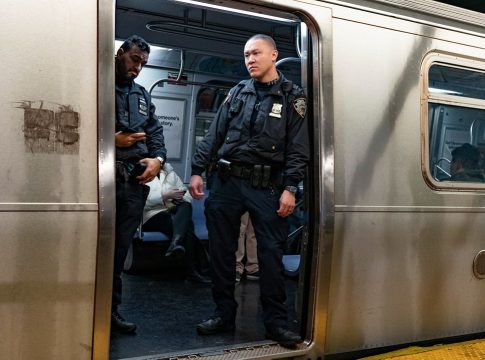Subway Safety Measures Amid Rising Assaults in New York City
City Officials Respond to Crime Trends with Focused Law Enforcement and Mental Health Initiatives
New York City’s subway system is grappling with a mixed bag of safety results, prompting officials to innovate their approach to urban crime. While overall subway crime has seen a decline of over 4% year-to-date, assaults have alarmingly surged by 17%, raising urgent concerns among commuters and law enforcement alike.
Increased Police Presence and Mental Health Resources
To address these rising concerns, the city implemented enhanced safety measures, including the deployment of an additional 1,750 officers—1,000 from the State and MTA Police and National Guard, and 750 more this year, with a portion riding overnight trains. Many New Yorkers appreciate their presence, believing it fosters a greater sense of security. Rider Ara Peters remarked, “I love to see cops. It always makes you feel a little bit better,” while another commuter, Arkiss Bettencourt, echoed the sentiment, adding, “I think having a larger police presence would be a big deterrent.”
Assault Trends and Mental Health Concerns
Despite the general decline in subway crime, the NYPD reported that more than 36% of the assaults have been directed at police and MTA employees, a statistic attributed to increased enforcement and engagement strategies. NYPD Chief Michael Lipetri noted that many of these violent incidents involve individuals suffering from mental health issues: “We’re working with the mayor and police commissioner…removing those individuals from the transit system when the law allows.”
Governor Kathy Hochul has committed $20 million to establish ten special mental health outreach teams, known as SCOUT teams, aimed at providing assistance to those in need, with plans set to roll out by year-end. Changes to the involuntary commitment law, which will take effect this summer, are expected to further enhance these outreach efforts.
Overnight Patrols Under Debate
As the city celebrates its overall crime reduction, questions loom over the ongoing overnight police deployments set to end this month. Commuters like Peters are vocal about their concerns, stating, “I think overnight is the dangerous time,” advocating for a continued police presence in subway stations after hours. Though Governor Hochul has expressed support for extending these patrols, city officials have yet to articulate a definite plan for future overnight security.
As of now, the dynamic between increased police presence and the need for comprehensive mental health solutions remains a critical focus for enhancing subway safety in New York City.

Focuses on crime, public safety, and regional events.
Bio: Marcus is a community-based journalist passionate about reporting impactful stories that matter most to readers.

